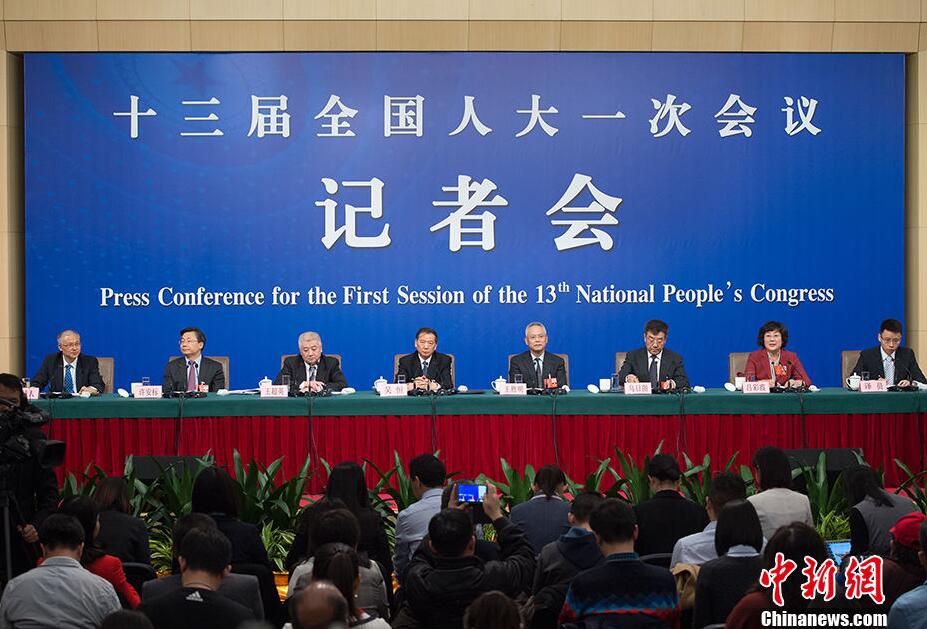
1. The storage management functions of the operating system include memory allocation, memory protection, address mapping and virtual memory. Memory allocation refers to allocating space for the process and managing memory usage. Memory protection refers to preventing one process from accessing the memory space of another process and protecting kernel code and data from illegal access.
2. The basic functions of storage management include: memory allocation, memory protection, memory expansion and virtualization of memory management. Now, let's discuss these functions in more detail.First of all, memory allocation is a basic function of storage management, which involves how to allocate memory space for programs.
3. Storage management mainly refers to the management of memory, the purpose of which is to improve the efficiency of memory use as much as possible. The object of memory management is the main memory, also known as memory. Its main functions include allocating and recycling the main memory space, improving the utilization rate of the main memory, expanding the main memory, and effectively protecting the main memory information.
4. Addressing space The operating system makes the system look much larger than the actual memory. Virtual memory can be many times the actual physical space in the system. Each process runs in its own independent virtual address space. These virtual spaces are completely isolated from each other, so the processes will not affect each other.

1. The operating system can pass a variety of Algorithms to manage memory, such as fixed partitions, variable partitions, partner systems and page management, etc. Among them, page management is the most commonly used memory management technology, which divides memory into pages of equal size and maps the logical address of the process to the physical address.
2. What are the main functions of the operating system? The main functions of the operating system are process and processor management, job management, storage management, device management and file management, as follows: process and processor management. Because the execution of the program must rely on the processor, only one program flow can be processed and executed at any time. Homework management.
3. You can use Disk Management to connect or load the local drive into any empty folder on the local NTFS volume. The loaded drive makes data easier to access and gives you the flexibility to manage data storage based on the working environment and system usage.
4. Determine the strategy of process scheduling. Give the process scheduling algorithm. Carry out the processing machine distribution. Memory management Another important resource in the computer system is the main memory. The execution of any program must obtain data information from the main memory.
5. Memory is flash memory, which cannot store things. It can only be managed by increasing or decreasing memory sticks. The CPU is a central processor, which can reduce the utilization rate of the CPU by ending the software process. If you want to enhance the use, you can replace a more advanced CPU, but pay attention to whether the interface of the new CPU is compatible with the motherboard.
1. Storage management mainly refers to the management of memory, the purpose of which is to improve the efficiency of memory use as much as possible. The object of memory management is the main memory, also known as memory. Its main functions include allocating and recycling the main memory space, improving the utilization rate of the main memory, expanding the main memory, and effectively protecting the main memory information.
2、Storage management in the operating system mainly realizes the management of the main memory of the computer. The Bingo Plus stockmain object of storage management is memory, which is the most important resource for operating system management in addition to the processor.
3. Processor management: mainly control and manage the work of CPU. Storage management: mainly allocate and manage memory. Device management: mainly manage basic input and output devices. File management: responsible for the organization, storage, operation and protection of computer files.
4. Memory management mainly refers to the management of internal memory. The five functions of the operating system are processor management, memory management, device management, file management and job management. Processor management The most basic function of processor management is to process interrupt events. After configuring the operating system, various events can be processed.
5. Storage management is the management of the main memory, which is one of the important functions of the operating system. Main memory is a valuable resource in the computer system, and the management and effective use of main memory is a very important part of the operating system.
6. Job management: including tasks, interface management, human-computer interaction, graphical interface, voice control and virtual reality, etc. File management: also known as information management. Storage management: The essence is the management of storage space, which mainly refers to the management of the main memory.
Bingo Plus stock-APP, download it now, new users will receive a novice gift pack.
1. The storage management functions of the operating system include memory allocation, memory protection, address mapping and virtual memory. Memory allocation refers to allocating space for the process and managing memory usage. Memory protection refers to preventing one process from accessing the memory space of another process and protecting kernel code and data from illegal access.
2. The basic functions of storage management include: memory allocation, memory protection, memory expansion and virtualization of memory management. Now, let's discuss these functions in more detail.First of all, memory allocation is a basic function of storage management, which involves how to allocate memory space for programs.
3. Storage management mainly refers to the management of memory, the purpose of which is to improve the efficiency of memory use as much as possible. The object of memory management is the main memory, also known as memory. Its main functions include allocating and recycling the main memory space, improving the utilization rate of the main memory, expanding the main memory, and effectively protecting the main memory information.
4. Addressing space The operating system makes the system look much larger than the actual memory. Virtual memory can be many times the actual physical space in the system. Each process runs in its own independent virtual address space. These virtual spaces are completely isolated from each other, so the processes will not affect each other.

1. The operating system can pass a variety of Algorithms to manage memory, such as fixed partitions, variable partitions, partner systems and page management, etc. Among them, page management is the most commonly used memory management technology, which divides memory into pages of equal size and maps the logical address of the process to the physical address.
2. What are the main functions of the operating system? The main functions of the operating system are process and processor management, job management, storage management, device management and file management, as follows: process and processor management. Because the execution of the program must rely on the processor, only one program flow can be processed and executed at any time. Homework management.
3. You can use Disk Management to connect or load the local drive into any empty folder on the local NTFS volume. The loaded drive makes data easier to access and gives you the flexibility to manage data storage based on the working environment and system usage.
4. Determine the strategy of process scheduling. Give the process scheduling algorithm. Carry out the processing machine distribution. Memory management Another important resource in the computer system is the main memory. The execution of any program must obtain data information from the main memory.
5. Memory is flash memory, which cannot store things. It can only be managed by increasing or decreasing memory sticks. The CPU is a central processor, which can reduce the utilization rate of the CPU by ending the software process. If you want to enhance the use, you can replace a more advanced CPU, but pay attention to whether the interface of the new CPU is compatible with the motherboard.
1. Storage management mainly refers to the management of memory, the purpose of which is to improve the efficiency of memory use as much as possible. The object of memory management is the main memory, also known as memory. Its main functions include allocating and recycling the main memory space, improving the utilization rate of the main memory, expanding the main memory, and effectively protecting the main memory information.
2、Storage management in the operating system mainly realizes the management of the main memory of the computer. The Bingo Plus stockmain object of storage management is memory, which is the most important resource for operating system management in addition to the processor.
3. Processor management: mainly control and manage the work of CPU. Storage management: mainly allocate and manage memory. Device management: mainly manage basic input and output devices. File management: responsible for the organization, storage, operation and protection of computer files.
4. Memory management mainly refers to the management of internal memory. The five functions of the operating system are processor management, memory management, device management, file management and job management. Processor management The most basic function of processor management is to process interrupt events. After configuring the operating system, various events can be processed.
5. Storage management is the management of the main memory, which is one of the important functions of the operating system. Main memory is a valuable resource in the computer system, and the management and effective use of main memory is a very important part of the operating system.
6. Job management: including tasks, interface management, human-computer interaction, graphical interface, voice control and virtual reality, etc. File management: also known as information management. Storage management: The essence is the management of storage space, which mainly refers to the management of the main memory.
UEFA Champions League standings
author: 2025-01-08 14:04App to watch Champions League live free
author: 2025-01-08 14:13 Hearthstone Arena class tier list 2024
Hearthstone Arena class tier list 2024
577.13MB
Check Hearthstone arena
Hearthstone arena
269.81MB
Check Free sports events uefa champions league app android
Free sports events uefa champions league app android
416.89MB
Check UEFA Europa League
UEFA Europa League
259.67MB
Check LR stock price Philippines
LR stock price Philippines
453.97MB
Check Arena plus APK
Arena plus APK
943.96MB
Check UEFA Champions League live streaming free
UEFA Champions League live streaming free
146.94MB
Check Hearthstone Arena win rate
Hearthstone Arena win rate
982.49MB
Check Hearthstone Arena win rate
Hearthstone Arena win rate
844.95MB
Check App to watch Champions League live free
App to watch Champions League live free
191.14MB
Check casino plus free 100
casino plus free 100
588.78MB
Check DigiPlus stock
DigiPlus stock
587.85MB
Check Hearthstone Arena win rate
Hearthstone Arena win rate
638.61MB
Check Hearthstone arena
Hearthstone arena
991.84MB
Check Hearthstone arena deck Builder
Hearthstone arena deck Builder
758.77MB
Check Hearthstone arena deck Builder
Hearthstone arena deck Builder
861.47MB
Check UEFA Champions League live
UEFA Champions League live
557.71MB
Check DigiPlus stock
DigiPlus stock
593.43MB
Check Hearthstone Wild Decks
Hearthstone Wild Decks
684.41MB
Check bingo plus update today
bingo plus update today
638.69MB
Check Europa League app
Europa League app
697.99MB
Check casino plus free 100
casino plus free 100
564.78MB
Check bingo plus update today Philippines
bingo plus update today Philippines
842.71MB
Check Arena plus APK
Arena plus APK
334.44MB
Check UEFA Champions League
UEFA Champions League
263.41MB
Check European Cup live
European Cup live
735.88MB
Check bingo plus update today Philippines
bingo plus update today Philippines
374.96MB
Check bingo plus update today Philippines
bingo plus update today Philippines
294.18MB
Check UEFA Champions League live streaming free
UEFA Champions League live streaming free
575.94MB
Check DigiPlus fair value
DigiPlus fair value
911.49MB
Check App to watch Champions League live free
App to watch Champions League live free
739.82MB
Check 100 free bonus casino no deposit GCash
100 free bonus casino no deposit GCash
196.47MB
Check App to watch Champions League live free
App to watch Champions League live free
623.77MB
Check UEFA Champions League live
UEFA Champions League live
548.55MB
Check bingo plus update today Philippines
bingo plus update today Philippines
173.82MB
Check UEFA Champions League
UEFA Champions League
445.84MB
Check
Scan to install
Bingo Plus stock to discover more
Netizen comments More
2487 Hearthstone arena deck Builder
2025-01-08 14:22 recommend
1965 Arena Plus login
2025-01-08 13:47 recommend
2030 Casino redeem
2025-01-08 13:30 recommend
1524 Free sports events uefa champions league app android
2025-01-08 13:06 recommend
1522 Casino Plus
2025-01-08 12:26 recommend